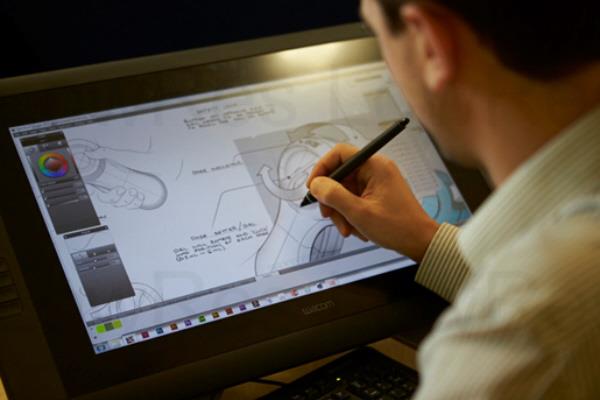Open to opportunity
I graduated from Brunel University in 2013 with a First Class Honours degree in Industrial Design and Technology. It provided me with a wealth of knowledge and as it was a sandwich course, enabled students to gain a one year work placement in the engineering industry.
I was first introduced to Owen Mumford at the New Designers Degree Show 2013, where I was showcasing a few of my projects from my final year of university. It was an opportunity to showcase my skills through project work that, little did I know, would later be applied to the medical device industry.
Owen Mumford’s product design and development manager, Clive Nicholls, was present at the show and was looking for graduates and/or projects with a design and technical focus that also demonstrated human factors knowledge. After meeting with Clive and taking him through my work at the New Designers show, I sent my CV and a selection of pieces of work from my portfolio to Owen Mumford. About two weeks after the New Designers Degree Show, I interviewed with Owen Mumford and was given an offer, starting that September 2013.
Engineering for the end-user
I started at Owen Mumford as a junior design engineer within the Design Engineering team. The main draw was that Owen Mumford is one of the few companies that design and manufacture medical products within the UK. This is particularly important because it gives a broader level of exposure to processes and challenges that are faced by manufacturing teams, which often can be solved during the earlier stages of developing a product. Having the experience and expertise of Owen Mumford’s manufacturing team has enabled me to learn and apply good manufacturing principles to designs during the early stages of development.
The medical design industry is highly precise in nature and a large level of creative and technical design is demanded. This provides a great environment for a junior designer to learn a lot about good design practise, and a chance to develop the middle to back end of the design process within the Design Engineering team.
Owen Mumford is passionate about the end-user and this is a large focus during the development process. In turn, this is a key element of a junior designer’s role (including an in-house human factors specialist), to conduct user studies that inform the designs and help address the specific user’s needs.
An ever-evolving industry
After about 18 months of being at Owen Mumford, I became a design engineer within the Product Design team. As I studied Industrial Design at university, this role came naturally to me.
Within Owen Mumford there is a great amount of teamwork between the design teams, with all design engineers expected to cover the middle stages of the design process. The middle stage of the design process is taking a working concept and developing every part of the product or process to make the product suitable and robust for full production, whilst still ensuring its functionality.
The main difference between the two teams is the Product Design team tend to focus on the earlier stages of development, concentrating on what the user needs are; how the user interacts with the product; and the aesthetic design. The Design Engineering team takes a more technical and analytical approach to its work.
Most of my responsibilities therefore remained the same in my new role; working through design input; concept development; prototyping; CAD development; tolerance analysis; Design Failure Mode and Effect Analysis. Working within the Product Design team meant there was also a focus on the front end of the design process, this includes: concept ideation; aesthetic and functional design; User Failure Mode and Effect Analysis and user studies / human factors engineering.
 Using Sketchbook to communicate early concepts
Using Sketchbook to communicate early concepts
I love the high level of thought, detail and due-diligence that is required in the design and manufacture of medical devices. Working in engineering allows for many avenues to be explored as the industry constantly evolves, with advances in technology and more. When it comes to drug delivery systems, the industry is rapidly moving towards wearable devices, or ‘smart devices’, that automatically deliver the drug over a period of time.
We are already seeing evidence of these products being produced and Owen Mumford is keeping ahead, consistently developing its products to meet end-user needs. Through the use of the latest technology, rapid prototyping, and end-user studies, I’m proud to be part of a team that’s engineering to make a difference.





